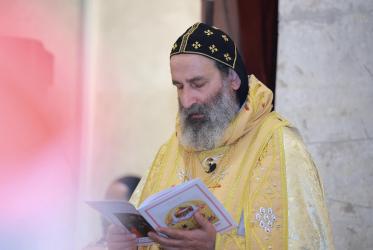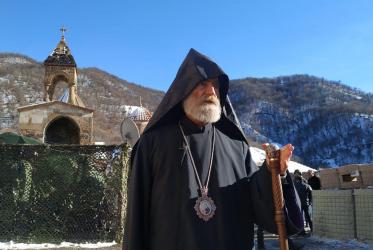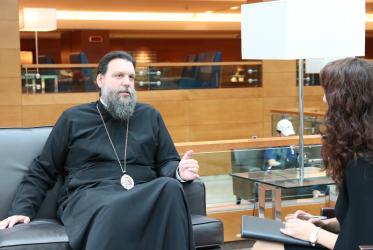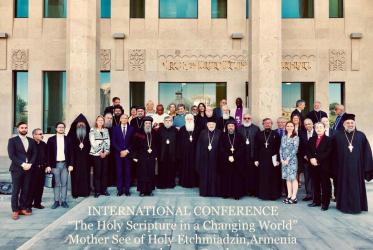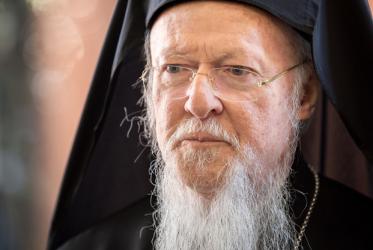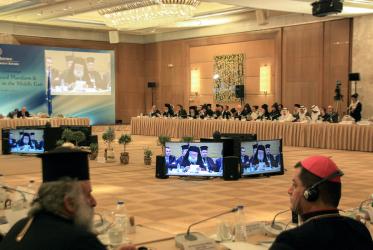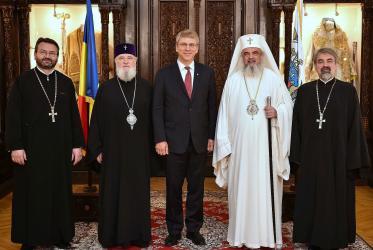Displaying 1 - 20 of 23
WCC well-represented in Religions for Peace leadership
07 October 2019
Fr Alexi - a peacemaker in Syria
21 December 2018
Romani people seek “lives of decency, dignity, and justice”
27 September 2018
"Green Patriarch" to visit Iceland
28 September 2017
In Syria and Iraq, minorities must come out of the darkness
28 November 2016
WCC/UN conference calls for coordinated action on refugee crisis
20 January 2016
International conference addresses challenges in the Middle East
22 October 2015
WCC urges responsibility for and support to the refugees in Europe
04 September 2015
